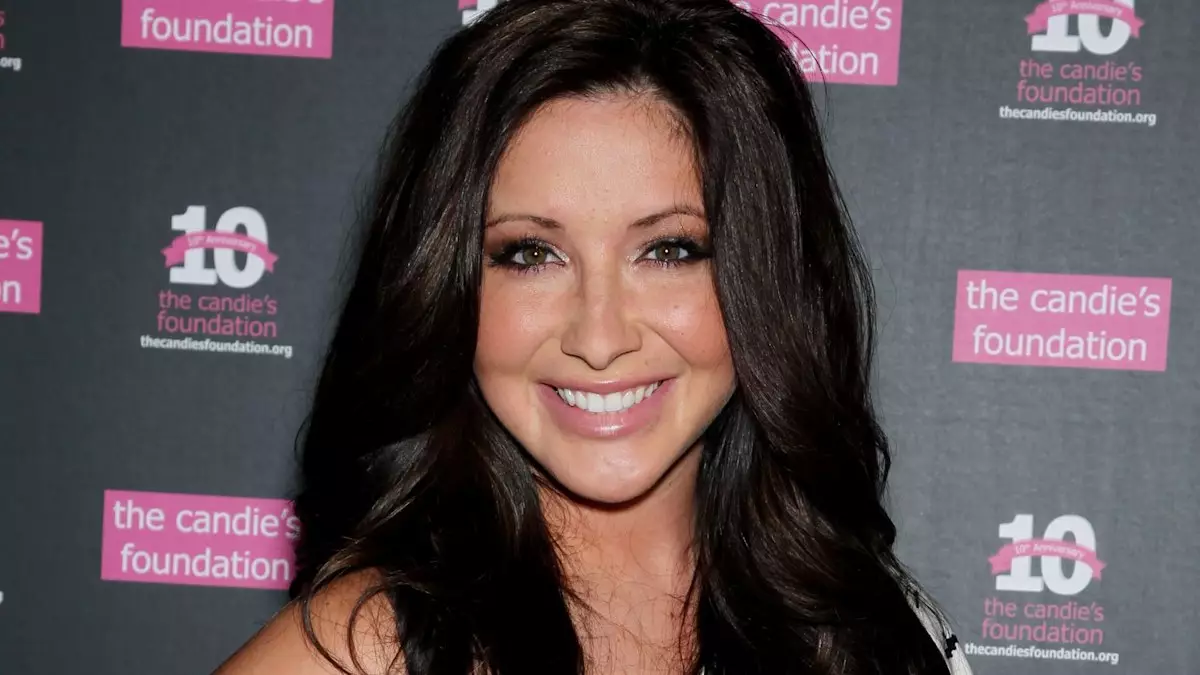In a startling revelation, Bristol Palin has opened up about her recent battle with facial paralysis, provoking discussions about mental health accessibility and understanding neurological disorders. The 34-year-old reality TV star, who is also well-known as the daughter of former Alaska Governor Sarah Palin, took to Instagram to share her dramatic experience with her followers. In the video captured on Wednesday, she described the sensation that initially led to her diagnosis, recalling how she woke up feeling a “little weird” on the left side of her face. This casual description belies the profound impact that facial paralysis has had on her life and mental state.
Within hours, Bristol experienced debilitating numbness, rendering the left side of her face completely immobile. As she expressed in her video, the condition transformed her daily life, stripping her of the ability to communicate through facial expressions—one of the most fundamental ways humans interact. This initial shock transformed into a more profound realization of her vulnerability and the fragility of physical health, revealing how quickly life can change.
Seeking to understand her condition, Bristol consulted with medical professionals who conducted a battery of tests, including a CT scan. To her dismay, the results came back inconclusive. However, doctors presided an informal diagnosis of Bell’s palsy—an ailment characterized by sudden weakening of facial muscles typically caused by various factors, such as virus exposure or stress. Bristol’s reflection on the possible triggers, including an insinuated link to stress and lack of sleep, underscore a broader dialogue on how emotional and mental health can manifest physically.
The emotional toll of her experience has been revealed through Bristol’s candid insights. The viral nature of Bell’s palsy, described by the Mayo Clinic as a condition that typically leads to a noticeable droop in facial expressions, emphasizes the relentless struggle individuals may face with self-image and social perceptions. Bristol’s account not only sheds light on her personal challenges but raises awareness around neurological conditions that may often go unnoticed until they severely alter one’s quality of life.
Despite grappling with the initial shock of her diagnosis, Bristol shared a sense of cautious optimism as her condition began to improve. Over the past few days, she noted, “It’s been a little painful… which is a sign that it’s getting better.” Such phrases resonate deeply with anyone who has faced a health crisis; the pain is often both a reminder of struggle and a harbinger of recovery. Bristol articulated her gratitude for the return of sensation, signaling a turning point in her healing journey.
Intriguingly, her experience has prompted a significant shift in her self-perception. She articulates profound reflections on her insecurities regarding appearance, realizing that moments of superficial self-critique seem trivial when contrasted with the experience of losing control over one’s own face. “The next time I look in the mirror… I’m going to remember this,” she stated, an acknowledgment of the deeper values of health and functionality that transcends transient beauty standards.
Bristol’s vulnerability not only invites empathy but also serves as a platform for educating others who may face similar challenges. Her candid sharing of advice—particularly the suggestion to explore alternative treatments—encourages those suffering from related symptoms to seek comprehensive solutions that weave together Western and Eastern medicine. This approach may pave the way for a more integrative understanding of health, where conventional medicine meets holistic practices.
Bristol Palin’s recent struggle with facial paralysis is more than just a personal battle; it is a compelling narrative that intertwines awareness, resilience, and newfound appreciation for health. Her story serves as a reminder that challenges can reshape perspectives, encouraging others to embrace gratitude amidst adversity. It is through stories like hers that society can cultivate greater compassion and understanding for those facing neurological disorders, emphasizing the importance of mental well-being alongside physical health.

